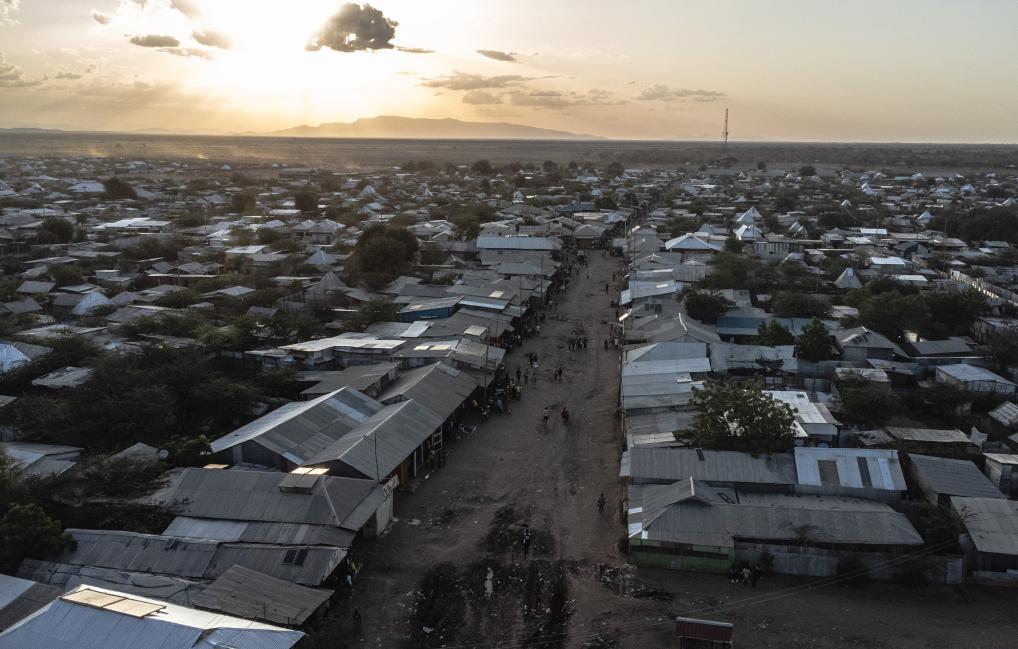Haimanot Teferra said that the IMF and Kenyan officials had talks on policies and reforms to address the economic and fiscal challenges…reports Asian Lite News
The International Monetary Fund (IMF) on Tuesday urged Kenya to intensify efforts to tackle budgetary and economic challenges, following reforms in the East African country that sparked mass protests in June.
Haimanot Teferra, the IMF team leader who concluded a six-day visit to Kenya, said discussions centered on policies and reforms to tackle the country’s growing fiscal issues.
“We remain fully committed to supporting the authorities on their efforts to identify a set of policies that could support the completion of the reviews under the ongoing program as soon as feasible,” Teferra said in a statement Tuesday evening.
She said that the IMF and Kenyan officials had talks on policies and reforms to address the economic and fiscal challenges. Kenyan authorities reaffirmed their commitment to advancing economic and governance reforms essential for fostering sustainable and inclusive growth for all Kenyans. “We will continue our discussions with the authorities,” she added, Xinhua news agency reported.
The IMF’s visit comes a few months after Kenyan President William Ruto withdrew the Finance Bill 2024 from the parliament following nationwide protests. The bill sought to raise an additional 346.7 billion shillings ($2.7 billion) through new taxes on essential goods and services, such as bread and mobile money transfers, to meet government revenue targets.
Some protesters accused the IMF of contributing to the crisis, arguing that the institution’s loans come with stringent conditions that disproportionately impact the poor.
Report for energy consuming facilities released
Meanwhile, Kenya has published a performance benchmarking study report for energy-consuming facilities to reduce greenhouse emissions in the country.
Daniel Kiptoo Bargoria, Director-General of the Energy and Petroleum Regulatory Authority, told journalists in Nairobi, the capital of Kenya, that the study targeted the cement, sugar, tea, dairy, flower sectors, fast-moving consumer goods and hospitality sectors.
“The study is central to our collective efforts on improving energy efficiency in our industries and other businesses,” Kiptoo said. According to the study, some of the industries performed poorly in terms of energy use index, while others performed better compared to other jurisdictions.
Kiptoo noted that the Kenya tea sector lags behind Sri Lanka and India in energy efficiency performance while the sugar industry performs worse than Brazil and Thailand. He revealed, however, that in the cement sector, Kenya outperformed Egypt and Canada while the country’s fast-moving consumer goods categories performed above that of Nepal.
Kiptoo said that the study recommends that Kenya adopt electricity efficiency utilization ratio benchmarks because it provides some of the quickest and most cost-effective emission mitigation options while lowering the overall cost of production.

Awareness campaign on ozone layer depletion
Kenya has pledged to scale up an awareness campaign on the devastating impacts of ozone layer depletion. Aden Duale, cabinet secretary for the Ministry of Environment, Climate Change and Forestry, said the campaign will provide an opportunity to further educate the public on the health and ecological impacts of depleting the ozone layer, a part of the earth’s atmosphere that absorbs the bulk of the sun’s ultraviolet radiation.
During the 2024 World Ozone Day national celebrations held in the Kenyan capital of Nairobi, Duale said the government is committed to phasing out ozone-depleting substances.
Kenya is in full compliance with phase-out obligations of hydrochlorofluorocarbons (HCFCs), and it is also on course to meet the 67.5-percent reduction target by 2025 under the Montreal Protocol, Duale said.
“We have made significant strides in phasing out ozone-depleting substances and are working diligently to meet our obligations under the Kigali Amendment, which calls for the phasedown of HCFCs,” he added.
According to the Kigali amendment, countries are supposed to phase down the production and consumption of HCFCs, thus creating the potential to avoid up to 0.5 degrees Celsius of warming by the end of the century.
Duale said the Montreal Protocol has put the ozone layer on the road to recovery by phasing out Ozone-Depleting Gases and, in the process, helping mitigate climate change.
He added that the Montreal Protocol has directly contributed to reducing global warming by targeting substances like chlorofluorocarbons and HCFCs, which are also potent greenhouse gases. Duale said that Kenya has developed policies and legislation to guide cold chains for fresh produce to cooling in the transport and hospitality sectors as efforts aimed at achieving low global warming potential and energy-efficient alternatives.
World Ozone Day celebrates the Montreal Protocol, a landmark UN agreement adopted in 1987 that united the world to phase out the production and use of ozone-depleting substances to protect the ozone layer.
Inger Andersen, executive director of the United Nations Environment Program, urged nations to promote activities under the objectives of the Montreal Protocol and its amendments.
ALSO READ: China’s defence tech shine at Africa airshow

